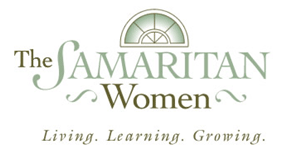Venture Philanthropy
 Raising awareness about human trafficking sometimes feel like an exercise in hitting someone who’s already down. By that I mean, we—and advocacy organizations like us—go out there and endeavor to tell the public that this horrendous (and huge) problem exists. First we hit them with staggering statics, we tally the human toll, we lambast the legislative inadequacies, then we bring it home, by telling them how “close to home” this crime actually is. Once the audience is flat on the floor in disbelief, then we have to tell them how bleak the landscape is for victim services (and avoid even mentioning how dismal it looks for perpetrator services)! If we’re trying to engender their help, we’re starting by rendering them with a spirit of helplessness.
Raising awareness about human trafficking sometimes feel like an exercise in hitting someone who’s already down. By that I mean, we—and advocacy organizations like us—go out there and endeavor to tell the public that this horrendous (and huge) problem exists. First we hit them with staggering statics, we tally the human toll, we lambast the legislative inadequacies, then we bring it home, by telling them how “close to home” this crime actually is. Once the audience is flat on the floor in disbelief, then we have to tell them how bleak the landscape is for victim services (and avoid even mentioning how dismal it looks for perpetrator services)! If we’re trying to engender their help, we’re starting by rendering them with a spirit of helplessness.
And yet we have to paint the picture as accurately as we can so that people who are inspired to engage can do so with intelligence and intention. The fact of the matter is: that last punch is a tough one. At best, all we have is anecdotal about how great the need is for residential care for survivors. We hear “between 200-300,00 American children in sex slavery in this country” and “beds for about 300.” Or when I talk with a federal specialist and she says that out of a room of 40 of her peers, not one of them could pick up the phone and reliably secure a bed for a survivor, it’s clear we have problem.
It’s a problem on many fronts. There simply aren’t agencies with enough beds for this population. There are too few professionals trained in the issue of trafficking (and trauma) to serve them. There’s no one proven model or consensus on what constitutes “comprehensive care,” and no reliable information on economics of care for a survivor. In so many areas on this issue, we’re all just making our way in the dark.
Just this month we convened a forum of philanthropists, foundation managers and service providers in the DC-VA-MD area to talk specifically about funding needs. We learned that a psychiatric hospital in DC charges $1,000 a day per patient. A secure residential facility can be in the mid $400s per patient for a day. An unsecured facility is around mid $200s per day. One Federal agency that offers services to foreign-born victims of trafficking put forth a Request for Proposal for shelter services, noting that they would compensate the agency up to $137 a day. To incarcerate a woman in Maryland it’s about $105 a day. (I’m trying to figure out what we’re doing—either very right or very wrong—because our cost of care for an adult female survivor is about $72 a day!) In the absence of models that make for pure comparisons, we’re each making our own way in this field, and often risking being out in front.
This is just where we are right now. Until we are to a place where funders who are (only) moved by documented statistics, quantifiable outcomes, and evidence-based research can be satiated, we’re going to have to rely on funders and donors who are willing to step out in faith—as most of us service providers have—and just trust us. What’s needed at this time are funders who operate with a spirit of Venture Philanthropy…people who move dollars based on people who are making change. I can’t tell you how big the problem is, but there is a problem. I can’t tell you everything s/he needs, but s/he needs help. And I can’t tell you how much you need to invest. But you need to take a risk, perhaps proportionate to the level of risk you see in those who are out ahead of the numbers.
Jeanne L. Allert is the Founder and Executive Director of The Samaritan Women, a Christian nonprofit organization operating a transitional residence program for women recovering from trauma and trafficking that emphasizes life-rebuilding and reconciliation. Jeanne also directs the Maryland Rescue and Restore Coalition, a gathering of committed organizations and individuals who are affecting change in the areas of awareness, prevention, intervention and advocacy. She is a compelling speaker on the topic of domestic human trafficking and has delivered awareness presentations to over 13,000 Marylanders to date. She is also on the Board of Advisors for the Abolition International Shelter Association.
